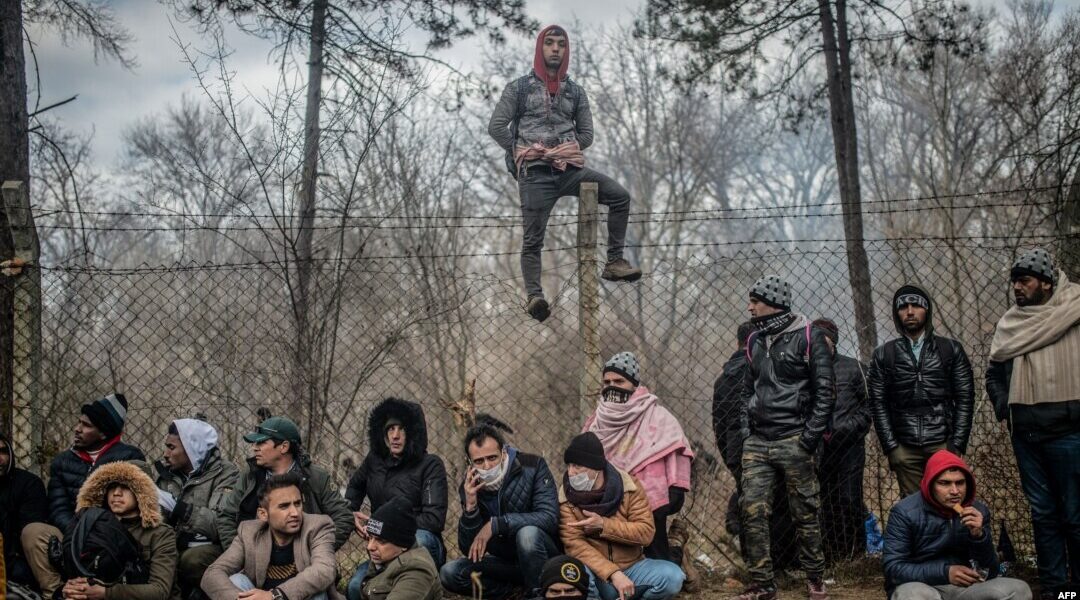The number of illegal immigrants entering Greece in 2015 (874,735) to 2019 (92,838), with only 27,396 illegal immigrants in camps today, demonstrates a massive reduction.
The government did not specify what happened to the illegals who left the camp, so it is important to point out that there are two ways of officially leaving the camps:
1) Getting the Asylum visa
2) Getting deported
Given the current political structure in Greece and its government, its far more likely that the illegal immigrants who left the camps did not leave Greece at all and instead received their visa.
From there, many left for Germany or other European countries but many still stayed in the country.
After the critical period of March 2020 , Greece strengthened the protection of its borders, whether by sea or land, with Turkey.
This has resulted in both a reduction in migration flows and arrivals, and a better management of situations, especially at sea, in order to protect as much as possible the lives of people trying to cross the Aegean, starting with Turkey.
It is indicative that in 2020, migration flows decreased by 79.5%, while in 2021 they decreased by an additional 41.1%.
In the first quarter of 2022 (as of March 31), only 1,907 migrants had entered the country from the land or sea border with Turkey.
It is indicative that at the beginning of the great immigration crisis, in 2015, 874,735 immigrants had entered the country, a huge number in proportion to the current data.
At the same time, the expansion of the list of "safe countries" in the last three years has brought several returns of immigrants to their homelands, with the result that the number of residents is drastically reduced.
It is noted that in relation to December 31, 2019, reductions of more than 70% are recorded.
At the same time, the enhanced surveillance of the maritime borders implemented by the Greek authorities undoubtedly contributed to the better protection of the lives of migrants.
In more than 1,500 cases handled by the Greek authorities at sea during the critical period from March 2020 until today, minimal loss of life of third-country nationals has been recorded, in contrast to the other migration corridors / other migration routes of the Central and Western Mediterranean.
The data for 2021 and the comparison of the numbers, are the biggest proof for the way in which the Greek authorities manage the delicate balances, the difficult situations and above all the human life with the required respect.
In the Eastern Mediterranean, the area where the Greek authorities are essentially called to be active in immigration, only 111 deaths were recorded, which translates to 5%.
By contrast, in the Western Mediterranean the figure rises to 19% (384 deaths), while in the Central Mediterranean it rises to 76% with 1,553 deaths of third-country nationals attempting to enter Europe by sea.
Meanwhile, on Tuesday night, Sydney Greek leaders met to raise funds to honor the unsung migrant heroes of the Greek community on the National Monument to Migration at the Australian National Maritime Museum, in recognition of the 200th anniversary of Greek independence.
The Greek Independence Bicentenary Project Fund is a collaboration between the Museum, a group of Greek philanthropists, and community organizations to honor Greek Australian migrants.
The individuals being honored will be chosen by the Greek community in partnership with the Greek Welfare Centre.
The event, at Ripples Maritime Museum, featured remarkable images from The Evzones Collection by photographer Nick Bourdaniotis and, thanks to the generosity of the photographer, two were auctioned for the Bicentenary Project Fund.
On the night $32,950 was raised. This will be added to $18,400 already raised from a range of donors including philanthropists Bill Drakopoulos, Emmanuel Alfieris, Ahepa National Educational Fund Incorporated, the Daughters of Penelope, the Lemnos Association of NSW, and AHEPA NSW.
All donations in support of the Greek Independence Bicentenary Project are fully tax-deductible and can be made to the Museum until 30 June 2022. The Project aspires to honor 200 people of Greek heritage who do not have the means to donate for the commemoration.
READ MORE: 70+ violations of Greek airspace by Turkish fighter jets, naval cooperation aircraft and UAVs.


